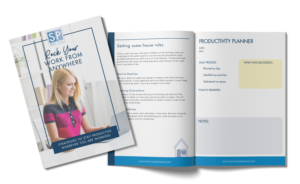
Do you know how you spend your time? That might seem like a strange question, but unless you stop and take a look at where your time really goes, it can be easy to waste time on unproductive activities without realizing it. Frequently working long hours can lead to burn out and resentment, and is counter-productive to sustained productivity. If you are feeling like there are not enough hours in the day to all of the things that you need to, it may be time to analyze your time management woes. Following these three steps will help you gain control of your time.
1) Understand where your time is going
Often there are discrepancies between how you intend to use your time, how you think you use your time, and how you actually use your time. Tracking your time is an easy way to see the gaps between these three things.
To figure out where your time is really going, track it each day for a week or two. Use a sheet with a line for each 15-minute increment to jot down quick notes throughout your day about what you are doing. It might sound tedious but it is not difficult, and the insights you will gain are essential to help you improve time management.
2) Analyze how you spend your time
As you review your completed time log, think about how your activities are aligned with your goals – or not – and look for things that might be problem areas.
Are you doing work you should not be doing? Think about your strengths, responsibilities and goals. With each task ask yourself if it is necessary, if it is producing results, and what would happen if you didn’t do it. Are you doing work that someone else should be doing, or tasks that are no longer relevant to your current goals? Are you taking on someone else’s responsibilities or doing busy work that produces few results? Consider whether you can delegate or eliminate some tasks if they are not productive or don’t align with your strengths and goals.
Are some activities taking too long? Review your most cumbersome tasks that take a lot of time. Are there ways you could do those more efficiently? What would you have to change to complete a task in less time than you usually spend on it? Try spending half as much time on your most cumbersome tasks and analyze the results.
Where are you wasting time? You may be surprised at how much time you spend looking at emails, text messages, social media, browsing online, searching for things you can’t find, chatting with people or on other unproductive activities. Be honest with yourself about how much time you are wasting by highlighting those activities on your time log.
Do you have too much on your plate? You might find that you have too many duties assigned to you or more commitments than can realistically be accomplished by one person in the amount of time available. In the workplace, your time log can help you demonstrate to your manager that the work assigned to you can’t be accomplished in the time allowed so a change in duties may be needed.
3) Set time management goals
There may be several factors contributing to your time management challenges, but don’t try to address them all at once. Choose one or two changes you can implement to give yourself more time. For example, if you easily get distracted by email when you should be focusing on a task, turn your email off and decide to only process email at specified times. If your time log analysis revealed that you are doing a task that a coworker should be doing, make an action plan for transitioning that responsibility to the right person. Whatever you decide, give yourself a deadline for these goals. After you have accomplished them, you will be ready to move on to your next time management goals.
Avoid mistakes
A common mistake is not being completely honest with yourself when you track your time. Fudging on your time log doesn’t help you. If you intended to just check your email but ended up spending a half hour on social media, write it down. Being accurate and honest is the only way you can learn where your time really goes and make productive changes.
Another mistake to avoid is not tracking your time long enough. To really understand where your time goes you should track it for a few weeks so that you can see patterns. Tracking just one day can be revealing, but if you stick with it for several days or longer you will gain much more benefit.
Enjoy the benefits
Even if you don’t decide to set any new time management goals, just the act of tracking your time makes you use it more wisely. Time tracking builds conscious awareness, the foundation of all good time management skills and productive habits.
Effective time management is a cornerstone of our productivity consulting and training programs. Contact us to learn more.






